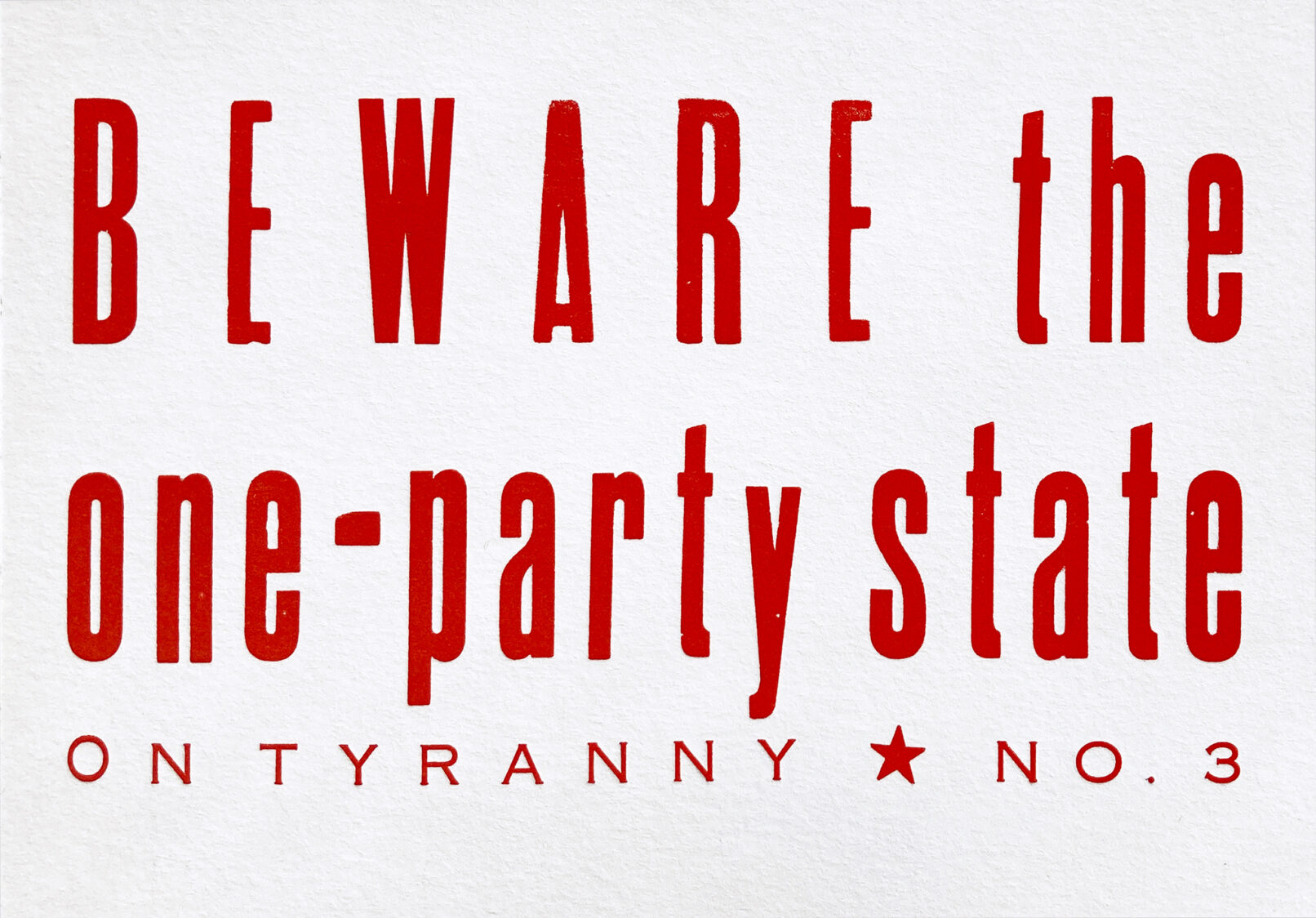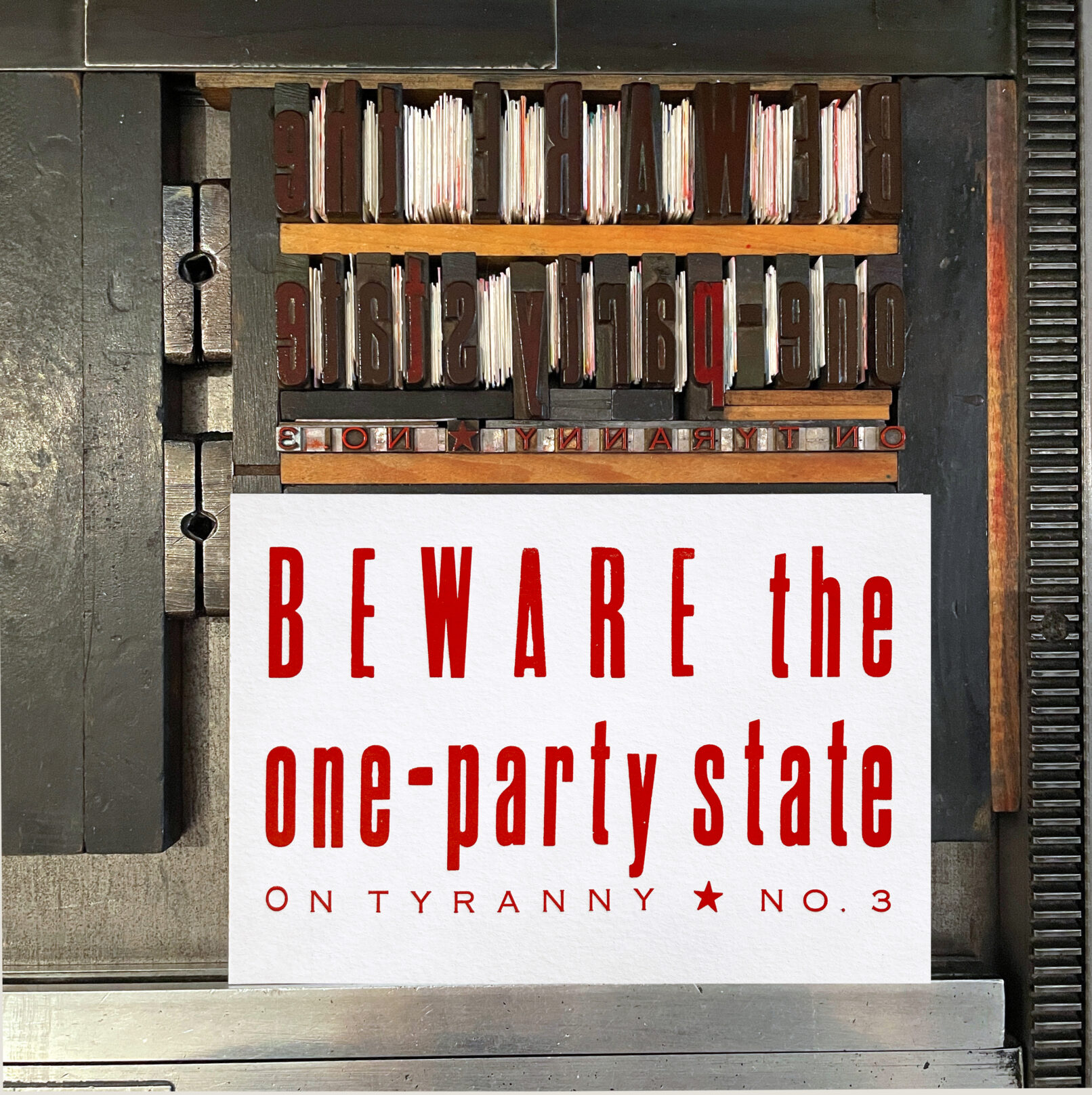“The parties that remade states and suppressed rivals were not omnipotent from the start. They exploited a historic moment to make political life impossible for their opponents. So support the multi-party system and defend the rule of democratic elections. Vote in local and state elections while you can. Consider running for office.”
–Timothy Snyder, On Tyranny
We see this suppression of rivals clearly with Trump: when he demeans and mocks his rivals and when he constantly lies and claims to having, doing, and being the best.
In some sense, the one-party state already exists in the United States, as the policies that Republican and Democratic parties endorse, maintain, and enforce become less and less distinguishable. Immigration, military, and police funding are three of the major areas where Republicans have set up camp at the extreme right and moderate Democrats aren’t far removed.
But Trump and Republicans in particular sell fear and prey on people’s bigotry and insecurities. They have nearly stopped running on any kind of policy platform, which is a sign Snyder warns about in his YouTube video about this lesson.
This was apparent in the June 27, 2024, presidential debate between Donald Trump and Joe Biden. The debate showed a slow, fumbling Biden and a lying, and relatively composed, Trump. Biden tried to answer the moderators’ questions and rebut Trump’s ridiculously false claims, while espousing his policy successes, while Trump didn’t bother to pretend that he had any other policy platform other than “winning.”
The idea of debate, as espoused by classical rhetoricians, is that you begin with a point of disagreement, called stasis, and then proceed with respect, curiosity, and reason to move your opponent in your direction in incremental stages. We are so far removed from this model that it’s clear what we call “political discourse” at this point is only for show and is not actually meant to change opinion. Ultimately, all discourse that shuts down dialogue is behaving like the one-party state.
What if, instead of shutting each other down at the first sign of disagreement, we began by acknowledging what we have in common? What if, instead of even beginning at a point of disagreement, we started instead with an acknowledgement of our shared humanity?
Hear Timothy Snyder speak about this lesson on YouTube.
This lesson was letterpress printed in Red 032 ink on a Vandercook proofing press.

